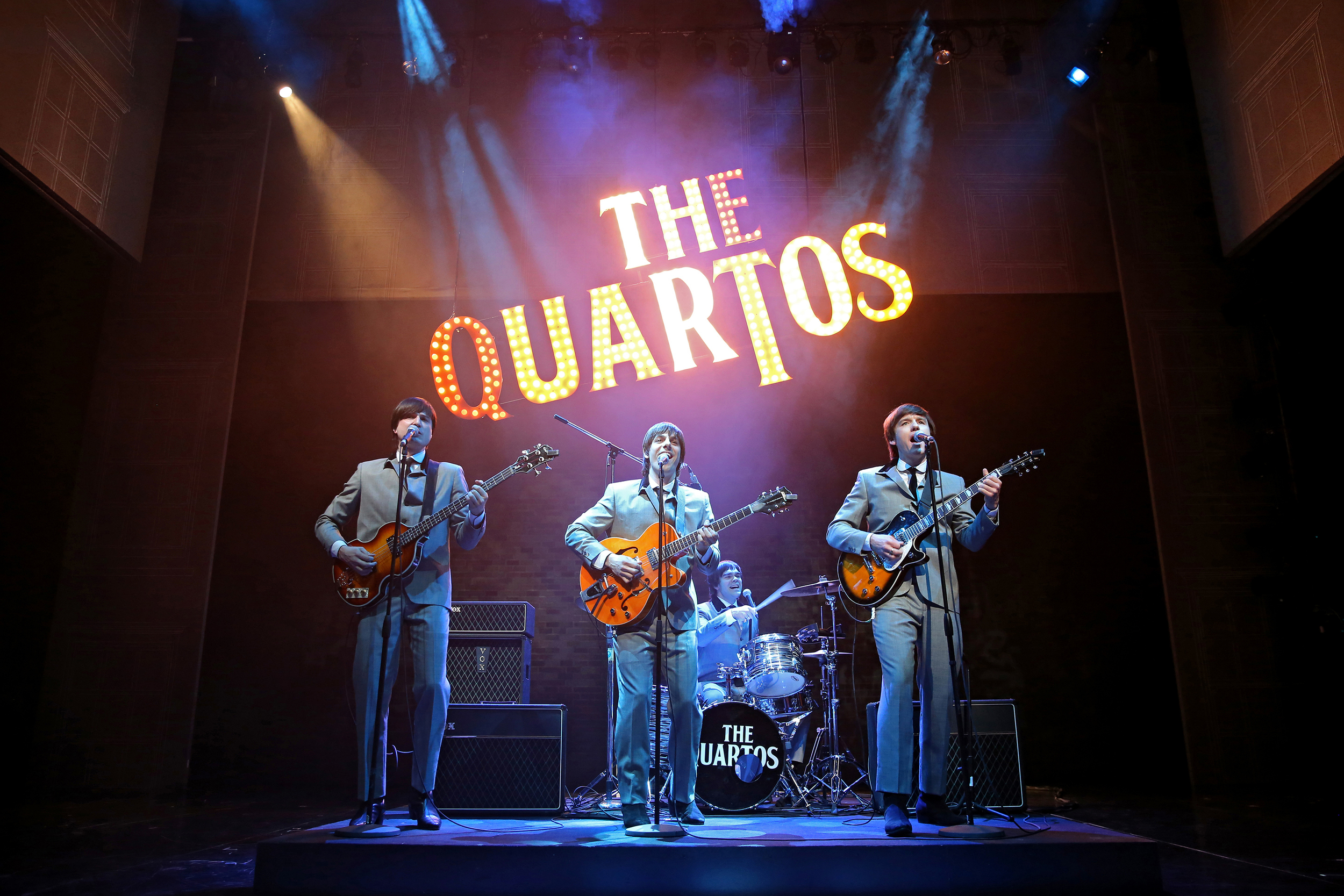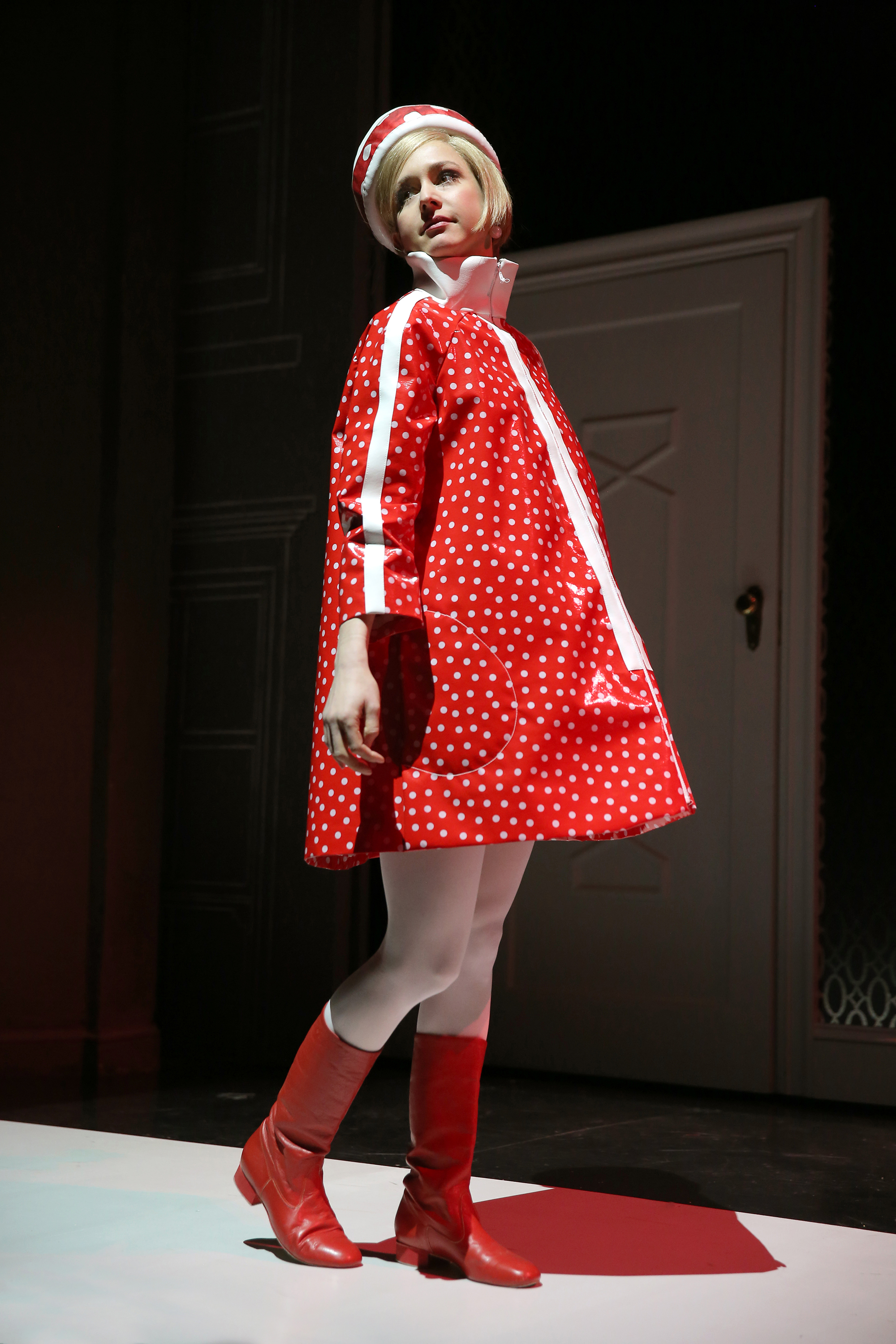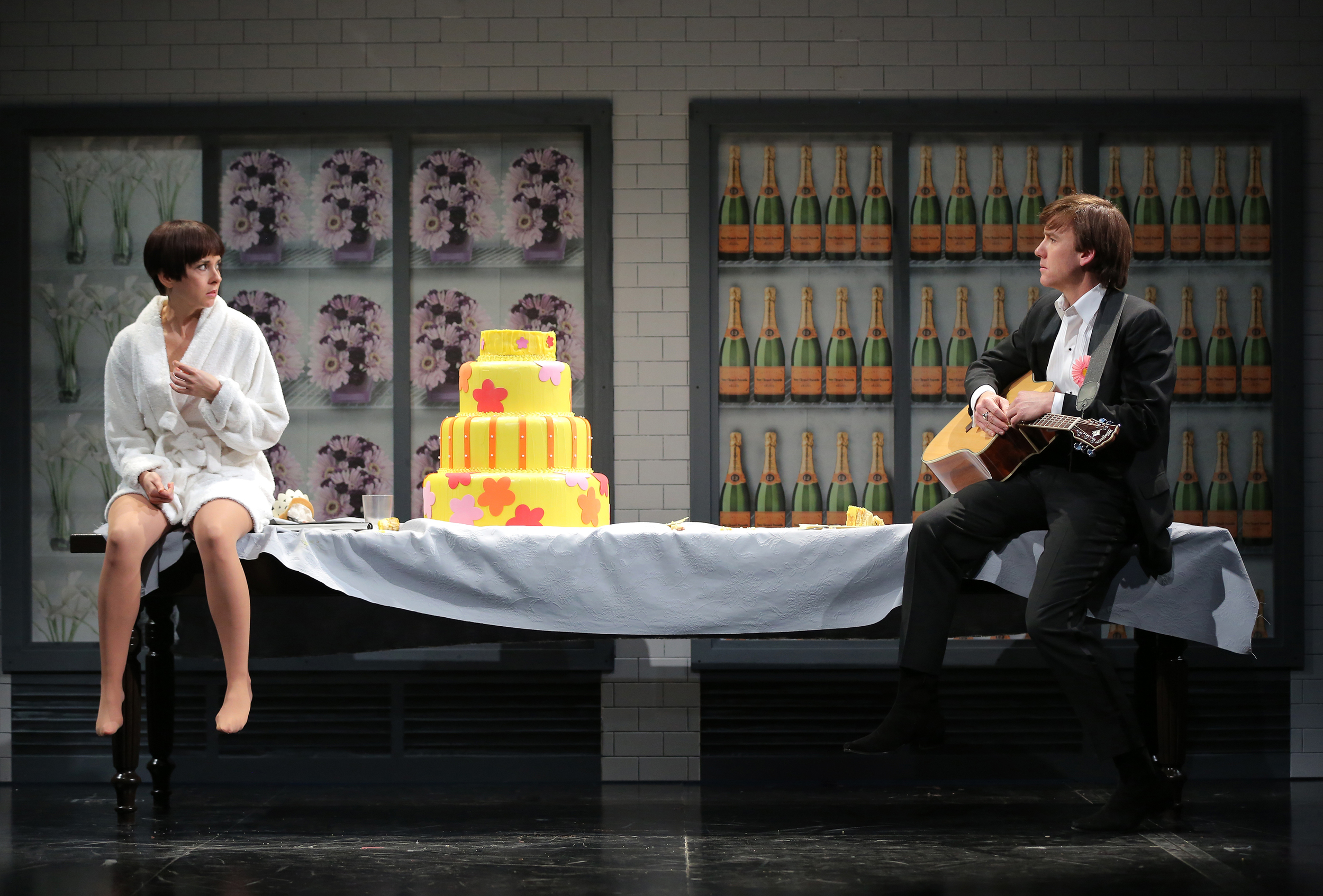Review of Make Believe, Hartford Stage
Bess Wohl and Jackson Gay, the author and director, respectively, of Make Believe, the opening play of the 2018-19 season at Hartford Stage, worked together early in their careers, collaborating at the Yale Cabaret while students in the Yale School of Drama. That fact seemed significant to me while watching Make Believe, which might work best as a one act (such as one sees at the Cabaret). Here, the play is in two parts without intermission, and it’s the second part, which has to make believe it depicts the present day of the kids we meet in the first part, that suffers from cuteness and an uncertain tone. The first part, played by actors under age 12, is dynamite.
Four kids, ranging from the eldest, Chris (Roman Malenda), to Kate (Sloane Wolfe) to Addie (Alexa Skye Swinton) to the youngest, Carl (RJ Vercellone), who is about five but doesn’t talk, occupy themselves in a huge playroom in a house where the adults are absent. Certainly, that’s meant to make the helicopter-parents among us feel freaked out, and it doesn’t help that we have to keep hearing Mom’s chipper voice on the answering machine (still a relatively novel device in the 1980s when the first part is set) as a series of callers leave messages about missed appointments and, from a distraught husband, a garble of bitterness. Mom’s MIA, in short, and the kids aren’t quite alright.
Kate (Sloane Wolfe), Carl (RJ Vercellone), Addie (Alexa Skye Swinton), background: Chris (Roman Malenda) (photos by T. Charles Erickson)
To amuse themselves, the kids—who, we expect, take care of themselves quite a lot—tend to play house, with Chris a funnily morbid pater who likes to let his family know that, eventually, we all get to either rot or get burnt up, we have no other choices. Kate, as the mom, is able to take a right to the jaw and get right back to work on whatever dinner might be. Addie, who has her own baby in the form of a Cabbage Patch doll, is apt to be off in her own world, and Carl is perfectly happy playing the dog, pantomimed pissing included.
The version of life the children get up to is darkly entertaining. We never forget (that damned phone won’t let us!) that they’re on their own for what starts to feel a distressing length of time. A letter Kate writes to the late Princess Grace (not knowing the celebrity has just died) lets us know not only that Kate may be the unknown offspring of the Princess of Monaco (compare the bone structure) but that the kids have eaten most of the food in the house, including the frozen stuff.
Chris (Roman Malenda)
Wohl’s dialogue is wonderfully sharp and zestfully foul-mouthed as only children—for whom each expletive is a gem—can be. As Chris, Roman Malenda gets several chances to shine: first in an under the sheet-tent tale about a boy he dislikes, then in a call to school—as a British nanny—to excuse the children from attending. At times he has an odd quirk of raising his voice mid-sentence for emphasis, as though a suppressed passion is ready to burst forth. As Kate, Sloane Wolfe is studiedly adult as precocious children often are, and she’s ready to defect. The younger kids are wonderfully physical in their ability to romp as if they aren’t in fact onstage. Playing a young girl at play is something Alexa Skye Swinton does remarkably well.
If the play ended when the child’s portion does, we would have to connect the dots and, who knows, might even have to allegorize a bit what the adults are doing to this insular world we’ve come to know and love. Instead, what a falling-off is there! Enter adult versions of the children, played with a kind of tense familiarity while speaking lines meant to connect things from then to now.
Addie (Molly Ward), Kate (Megan Byrne), Carl (Brad Heberlee)
As Kate, Megan Byrne is still trying to cope with everything that doesn’t add up. As Addie, Molly Ward is a mom herself (remember that Cabbage Patch doll?) and still trying to be a free spirit. Brad Heberlee’s Carl is at first MIA himself, then arrives to give a speech he was meant to deliver earlier. His extended crying jag that morphs into the howl he exulted in as family pet is a good example of the earnestness of the dot-connecting and underlining going on. Chris (a different one) played by the always presentable Chris Ghaffari is on hand to earn jokes about Millennials, be the object of MILF desire, and, yes, even a lover in mourning. Ghaffari handles it all by being sweet, as his namesake would never be. Thus we lose much of the acid that the irrepressible playacting master of the house interjected into the proceedings. Pity. Meanwhile, there are jokes at the expense of Scandinavians, a demographic (I guess) it’s still okay to otherize.
Chris (Chris Ghaffari)
Wohl, not content with the dysfunction among the adults in this family, has to give us an explanatory moment that adds more distress, from other adults in the past. Kate objects to the way that bit of backstory gets dropped into the scene, and I have to agree with her.
If you ever needed, in the course of one evening, evidence about how sad it is we grow up, find it here. Jackson Gay is to be commended on how seamlessly this show runs, and for having the guts and heart to direct this play on the big stage, with great help from a set both spacious and cluttered by Antje Ellerman, effective but unobtrusive lighting cues by Paul Whitaker, with music by Broken Chord and, no doubt, very vital stage managing by Rob Chikar and Kelly Hardy.
There’s much to think about here in terms of how we portray children, protect and neglect children, and project ourselves onto (and back to) children, as well as how children grow into the world as they find it. A fascinating evening of theater.
Make Believe
By Bess Wohl
Directed by Jackson Gay
Scenic Design: Antje Ellerman; Costume Design: Junghyun Georgia Lee; Lighting Design: Paul Whitaker; Original Music & Sound Design: Broken Chord; Dramaturg: Elizabeth Williamson; Production Stage Manager: Rob Chikar; Assistant Stage Manager: Kelly Hardy
Cast: Megan Byrne, Chris Ghaffari, Brad Heberlee, Roman Malenda, Alexa Skye Swinton, RJ Vercellone, Molly Ward, Sloane Wolfe
Hartford Stage
September 6-30, 2018








